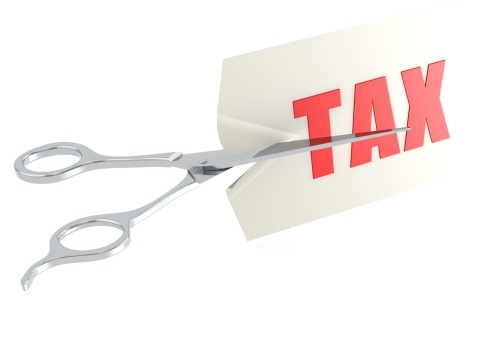By Stephen Sheinbaum
What were you doing last December? Juggling a busy high season? Planning holiday time with your family? Managing the usual jam-packed days at your business? If you’re like most small business owners, you were probably busy enough that you missed learning about a decision in Congress that could make it easier to buy or lease equipment, and improve your profitability.
Tucked into a spending bill that Congress passed in December was a provision that made big changes to Section 179 of the federal tax code. Section 179 governs the deductions that businesses can make when they buy or lease equipment. It was this section of the tax code that small business owners could benefit from, because a deduction can now lower a business’ taxable profits.
Some years, Congress let the bill expire when the year was almost over–and then revived it when it was too late for a qualifying small business to do any spending. Other years, the deduction level was so low that it would have little impact on any business that used it.
Now all of that is in the past. In December 2015, Congress made the Section 179 deduction permanent. Small businesses can now write off up to $500,000 in qualifying equipment in the year in which it is purchased, instead of depreciating it over several years. The deduction will be adjusted for inflation in the future.
What equipment qualifies? Many of the things a small business needs:
- Business machinery
- Business vehicles
- Office equipment
- Office furniture
- Computers
- Common software, and much more
So now your small business can make long-term plans for both the equipment it will need to grow and the best way to bring it into your business. You can buy or lease almost any kind of equipment these days. Your decision will depend on the kind of equipment: its useful life in your business and the demands on your cash flow, among other considerations.
Benefits of Buying Equipment
There are many reasons when buying equipment and owning it is outright appealing, but three points have usually driven most decision-making:
1) You get an asset you can leverage as collateral
2) You can sell the equipment later and apply the proceeds to other needs
3) If you buy new, you get a full warranty
Collateral, however, is not as much of a decision lever now as it was in the past. If your business will need a long-term loan to buy real estate or renovate your current premises, you will need to pledge an asset to secure the best terms. But there are many options for shorter term funding now that don’t require collateral: You can get working capital without it.
If the equipment you need will have resale value when you are done with it, buying it can make sense. Take the proceeds and apply them to the next equipment you need. You’ll need to maintain your equipment in top shape to get top dollar down the road.
Finally, when you buy a piece of new equipment, it comes with a warranty. That gives many small business owners great peace of mind. But you should know that warranties can vary greatly on coverage for repair, maintenance and defects.
Of course, before you buy a piece of equipment, you will need to make sure you will have enough capital left over for other needs.
Benefits of Leasing Equipment
Maybe you don’t have to deplete your bank account to get the equipment you need–you can lease it instead. Leasing’s proponents cite three arguments in its favor:
1) It can improve your cash flow
2) You have flexibility in meeting demand or adjusting to new technology
3) You don’t have to maintain it yourself
The cash flow point is a two-edged sword. There is no doubt a lease will take a smaller bite of your profits month-to-month. Keep in mind though, there are fees associated with leasing and they could add up and cost more than buying outright in the end.
How fast is technology changing in your line of business? A lease, especially a short-term lease, can let you bring in equipment as you need it and replace it when technology changes. Leasing can also be helpful if you want to try a piece of technology before you buy it.
Finally, leasing can be better than buying if you lack the skills (or the time) to maintain your equipment. Leasing contracts often comes with a maintenance plan. Just be sure you know what is covered and how often the service will be.
The Right Decision?
Before you commit to buying or leasing, make a call to your accountant or lawyer. These professionals can give you advice that is specific to your business. A long lease, for example, can have a far different impact on your tax picture than a short one, given the changes to Section 179. And remember, whether you are buying or leasing, there are funding options from both traditional lenders and alternative finance companies that can help you get what you need at the right terms for your budget.
Stephen Sheinbaum is the founder of Bizfi, an aggregation marketplace that offers many kinds of alternative funding, from short-term finance, to longer term loans, equipment finance and lines of credit. Since 2005, Bizfi has originated in excess of $1.6 billion in funding to more than 29,000 small businesses. @Bizfinyc.







